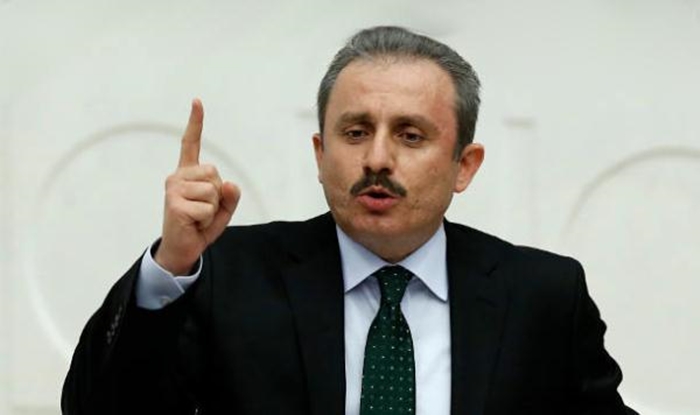Mustafa Şentop, head of the parliamentary Constitution Commission and ruling Justice and Development Party (AKP) İstanbul deputy, has said the government might bring constitutional amendments seeking to introduce a presidential system of governance in Turkey to Parliament in 10 days .
“The presidential system will be 90 percent similar to the US [presidential] system. But we propose a unitary system instead of a federal one and a unicameral parliament. The president [in the Turkish presidential system] will have less authority than the US president,” said Şentop, speaking to the Habertürk daily on Sunday.
Şentop also underlined that the government will not propose a new constitution but instead will make some amendments to the current charter.
Presidential system or division
Prime Minister Binali Yıldırım, who talked about the need to switch to presidential system on Sunday, said the adoption of presidential system will not lead to a division in Turkey as feared by some.
“Some say things like Turkey will be divided if the parliamentary system is replaced by a presidential system. In fact, Turkey faces the risk of division if it does not switch to a presidential system,” Yıldırım said during a party meeting in İstanbul.
Yıldırım claimed that the adoption of a presidential system will end the era of weak governments in Turkey and will help country to reach its 2023 targets.
‘AKP to bring fascism’
Meanwhile, the main opposition Republican People’s Party (CHP) continues to step up its criticism against the introduction of a presidential system in Turkey, with a senior party official accusing the AKP of trying to bring fascism to Turkey under the cover of a presidential system.
“With a presidential system they want to bring a one-man regime, an absolute fascist rule,” said CHP spokesperson Selin Sayek Böke in an interview published in the Birgün daily on Sunday.
“Whatever is written in the draft, we will see a roadmap for the establishment of a one-man regime eventually. What they [AKP] describe as a Turkish-style presidential system is a one-man regime. Turkey has been experiencing fascism for months.” added Böke.
Böke also criticized Nationalist Movement Party (MHP) leader Devlet Bahçeli for stepping back from his critical stance against a presidential system.
Earlier this month, Bahçeli sparked a fresh debate over the introduction of an executive presidency in Turkey when he said there was a de facto situation in Turkey concerning its style of governance and that President Recep Tayyip Erdoğan was already acting like an executive president even though his post is largely ceremonial. Bahçeli said the situation needed to be resolved.
Bahçeli’s remarks were interpreted as supporting a switch to an executive presidency.
The post of the president is largely ceremonial in Turkey; however, President Erdoğan has been acting as an executive president since his election to the top state post in August 2014. Erdoğan is a strong supporter of a switch to the presidential system. Yet, critics say Erdoğan wants a “Turkish style” executive presidency without checks and balances, one that is aimed at creating one-man rule.
